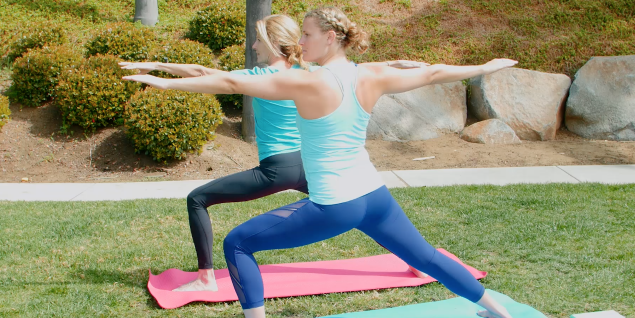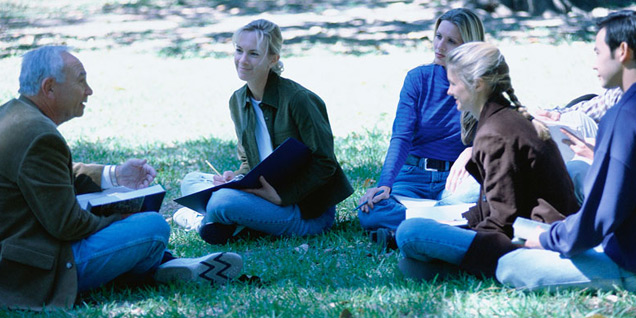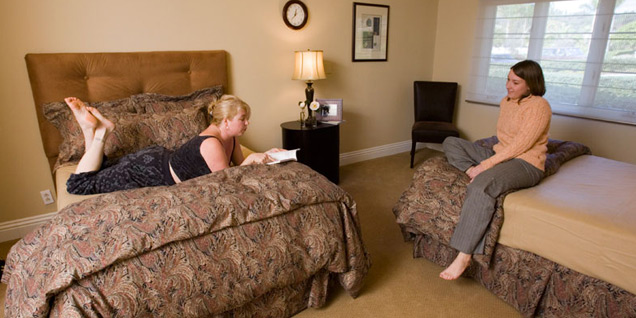Casa Palmera, located near San Diego, is a free-standing residential behavioral health treatment facility accredited by the Joint Commission. The Casa Palmera experience is a unique alternative to the traditional approach in treating behavioral health disorders practiced by many other rehabs in California and around the country. . The recovery programs offered at Casa Palmera draw from the best of modern scientific knowledge, as well as ancient eastern intuitive healing techniques. We offer a diversity of behavioral health treatment plans, including individual and group therapy, psycho-educational interactive groups, and a rich variety of adjunctive holistic treatment modalities that include bio/neuro feedback with brain mapping, yoga, expressive art therapy, meditation, spiritual well being and a ropes challenge course. Chemical addictions, disorders, and other health challenges addressed include: addiction to alcohol and/or other drugs, and associated trauma. Casa Palmera also treats the effects of trauma, depression anxiety and PTSD.
Chemical Dependencies
Research shows that patients sustain more successful recoveries with a longer length of stay. Because of this, we strongly recommend a minimum length of stay of 30 days in our residential level of care but understand that this may not be feasible for everyone.
Alcoholism
Alcohol addiction is a progressive disease that develops when someone continues to consume large amounts of alcohol, even in the face of negative consequences, and even when they might have the desire to stop. When someone suffering from alcoholism consumes alcohol, they no longer have the ability to control their lives,
their long-term physical health is put in jeopardy, and their relationships and priorities seem all but impossible to sustain. Over 13% of U.S. adults will become alcoholics in their lifetime.
Drugs
Stimulants, inhalants, cannabinoids, depressants, opioids, morphine derivatives, anabolic steroids, hallucinogens and prescription drugs are the most prevalent drugs that are abused. Cocaine, categorized as a stimulant, is highly addictive and is the most popular of all the stimulants used in the U.S. today. Heroin acts very similarly to other drugs in the opiate family because it is derived from morphine.
Learn about stimulants, inhalants, cannabinoids and other types of drugs »
Dual Diagnosis
The technical term for dual diagnosis is the presence of both a mental disorder along with drug or alcohol abuse. Although the exact number of people suffering from dual diagnosis is hard to count, approximations of various surveys estimate that approximately 53% of people who abuse drugs and 37% of people who abuse alcohol are known to have had at least one psychological disorder.
Types of Dual Diagnosis
- Chemical Dependency
- Trauma
At Casa Palmera, we recognize dual diagnosis as a pair of disorders that may cover a wide span of problems. Such problems include trauma and chemical dependency. Each of these disorders affects a person mentally, physically, spiritually and socially. Additional names for dual diagnosis include co-occurring disorders and concurrent disorders.
Trauma
After someone has been affected by trauma, their body continues to trigger the involuntary stress reaction in the body. This reaction often makes you feel overwhelmed with fear and very helpless. Common warning signs that indicate the need for trauma treatment include:
- Depression / Anxiety
- Abuse of drugs and/or alcohol
- Disturbances in appetite and/or changes in eating patterns
- Inability to trust others
- Difficulty concentrating / Easily distracted
- Feeling uncomfortable or anxious in social situations
- Recurring thoughts from the trauma interfering with everyday life
- Trouble sleeping/insomnia
Post Traumatic Stress Disorder PTSD
In general, post-traumatic stress disorder is an emotional illness that develops in the wake of someone living through a terrible event or terrifying experience. After this, the person then reacts differently to normal, everyday events and life experiences.
Symptoms are produced in three different ways:
- Re-experiencing the trauma
- Persistent avoidance
- Increased arousal
Post-Traumatic Stress Disorder »
Depression Outpatient Treatment
Casa Palmera provides comprehensive outpatient services for those participants who are not at medical risk and are assessed as being able to participate successfully in regularly scheduled outpatient visits.
Treatment Options
At Casa Palmera, our innovative programs provide individualized treatment based on your case history. Our bio-psycho-social-spiritual approach integrates the full range of treatment modalities to meet your specific needs. Using Cognitive Behavioral Therapy, we educate participants about the relationships between thoughts and feelings, exploring common negative thoughts and discovering new ways of looking at things.
Seeking Help
Although it can be hard to admit, concurrent disorders can have a major impact on your life. Casa Palmera extends its arms out to you and offers you an opportunity for recovery – an opportunity for a new life. Our professional staff takes pride in being one of the top treatment centers in California and they will give you hope and a brighter future. No one deserves to live a life of pain, fear, shame and psychological torment. Call us today and let us help.






